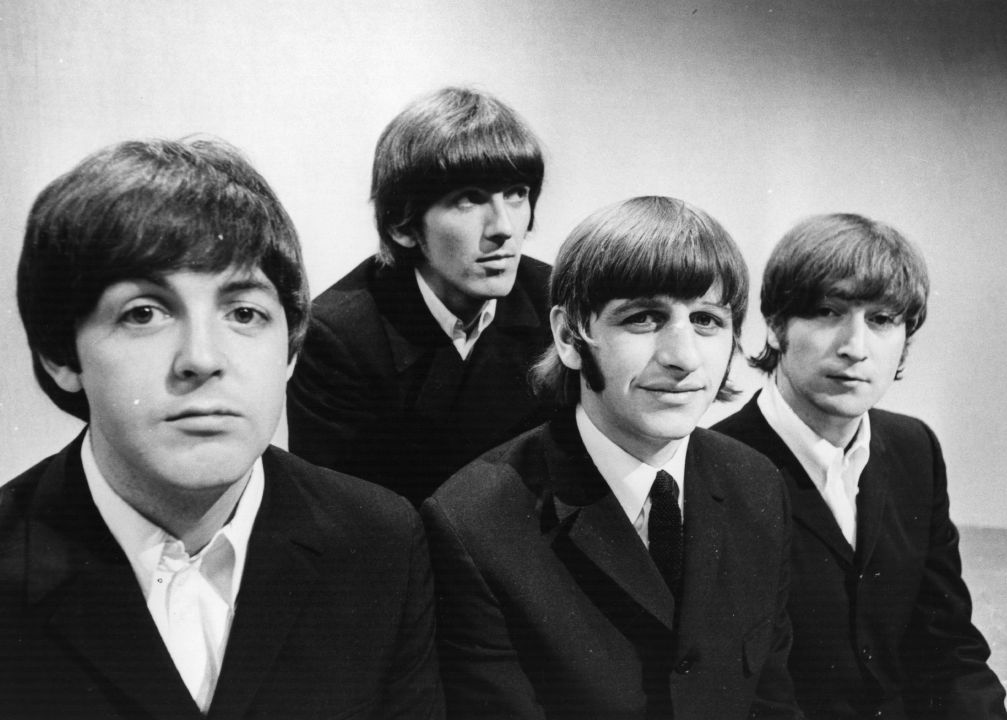Not everyone likes The Beatles. That said, trashing cultural icons is a modern phenomenon amplified by social media and done, largely, to attract attention. Yet whether you hate them or love them (yeah, yeah, yeah), their influence on pretty much everything pop music has offered since is, surely, undeniable.
Sixty years ago they left an indelible imprint on both music and film that continues to this day. In April 1964, John Lennon and Paul McCartney sat down in a hotel room and wrote a song to accompany the title of the band’s first (and best) feature film, ‘A Hard Day’s Night’. The song itself is typical of their early output. A sugary song about love, less than three minutes long yet its significance cannot be underestimated.
The film of the same name was a black and white, only slightly fictional account of 36 hours in the lives of the band in which they played themselves. But for the first time it showed chart topping pop stars not as spoilt millionaires singing songs written by other people contracted to their record company but as ordinary boys from ordinary backgrounds with extraordinary talent who talked, joked and acted just like those who bought their records.
It was the first movie of its kind, a documentary style comedy musical in which they sang songs they wrote themselves and stripped the veneer off their superstardom. This was back when they genuinely seemed to have fun before they became more insular, stopped performing live and drifted off into drugs, barmy Swamis and their own god-like status.
Directed by Richard Lester, A Hard Day’s Night was nominated for two Academy Awards and launched a series of copycat films by other members of the ‘British Invasion’, notably Cavern Club stablemates Gerry and the Pacemakers as well as The Dave Clark Five.
Others followed from TV series The Monkees and The Partridge Family in which the performers played themselves in a series of fictional adventures, to cartoons of The Osmonds and Jackson Five and, years later, the ‘mockumentary’ Spinal Tap and the movie Spice World with The Spice Girls cashing in on their fame.
The album written to provide the soundtrack was the third studio album by The Beatles but the first to solely consist of their own songs rather than covers and moved them from a rock and roll band to an exponent of pure, profitable, exportable pop music. That, too, paved the way for other bands to rely less on rehashing Little Richard or trying to be the new Elvis and show the world they could write their own stuff.
By 1964 the Fab Four had already charmed their way into the hearts of millions and began their conquest of America but it was the events of 60 years ago that marked them out as individuals with their own style, their own songs, their own character and which would have a greater influence on popular music than any other artist before or since.
The first side of the album contains songs used in the film, the second are songs written for the movie but not used. The first side is better, containing the title song, ‘Can’t Buy Me Love’ and ‘I Should Have Known Better’. Significantly, every song is by Lennon and/or McCartney, features bold new chord choices and chord changes, pure harmonies and makes use of more than just guitar, bass and drums to include a harmonica and George Harrison’s distinctive 12-string Rickenbacker which influenced genres from psychedelia to folk rock in the following years.
And they could play. There is a story that producer George Martin could only show arrangements he liked on the piano because he couldn’t play guitar so all four of the band (yes, even Ringo) learned piano so they could show Martin how they got to their own arrangements.
There are 13 songs on the original UK album which, combined, last for nine seconds over half an hour of glorious, unadulterated pop. It received enormous critical acclaim back then and continues to do so to this day even if it does compete with later, more experimental albums such as Sgt Pepper’s and The White Album. In his 2013 book Yeah Yeah Yeah: The Story of Modern Pop, Bob Stanley wrote of the album:
If you had to explain The Beatles’s impact to a stranger, you’d play them the soundtrack to ‘A Hard Day’s Night’. The songs, conceived in a hotel room in a space couple of weeks between upending the British class system and conquering America, were full of bite and speed. There was adventure, knowingness, love and abundant charm.
There is nothing wrong in not liking The Beatles. It’s not to everyone’s taste and even though they were only around for seven years or so, even their most passionate fans argue about which period of their output was the best.
What does irk is the view that they were unimportant or irrelevant even in today’s much more varied music scene. Beyonce’s latest album, for instance, a country music affair called Cowboy Carter, features a cover of The Beatles’s ‘Blackbird’ (written about America’s civil rights movement). Clearly they are still significant. After all, we’re still arguing about them 60 years later. The same will not be said for those who trash The Beatles simply to attract attention.








Comments